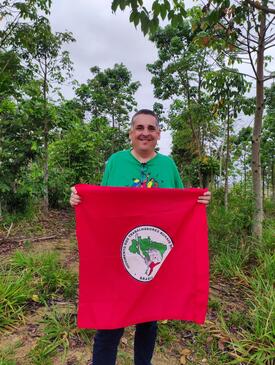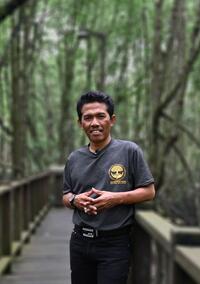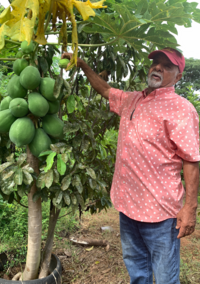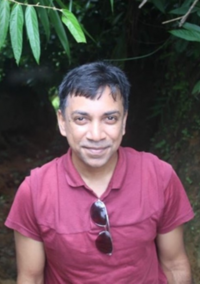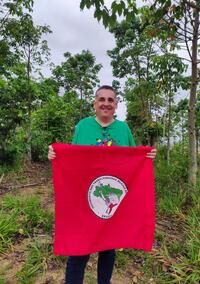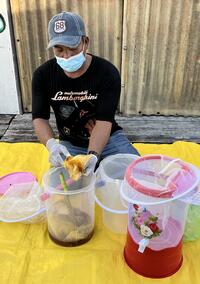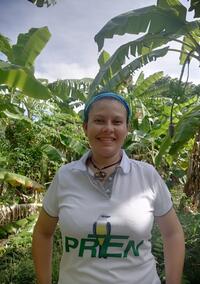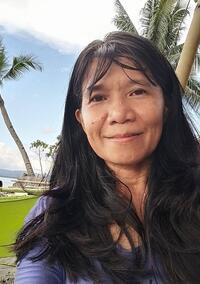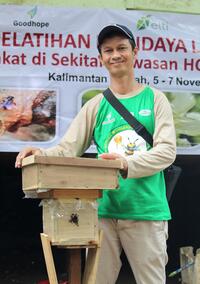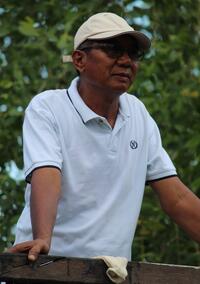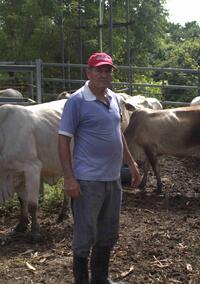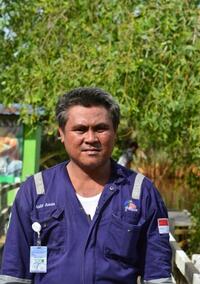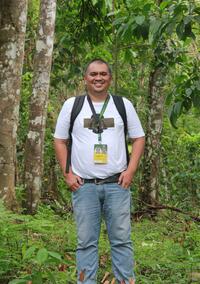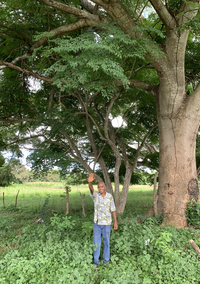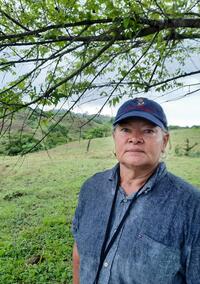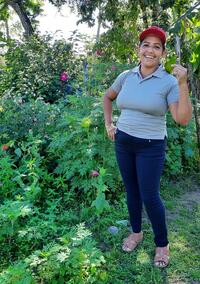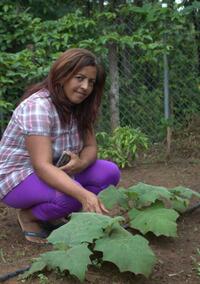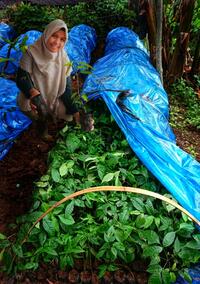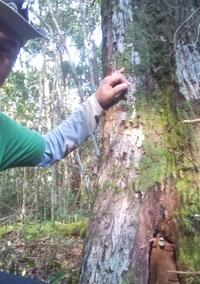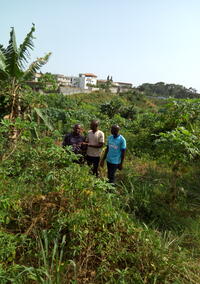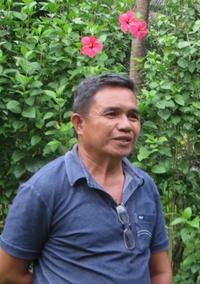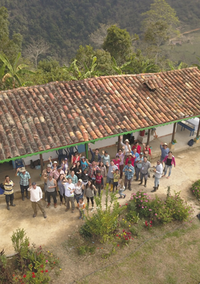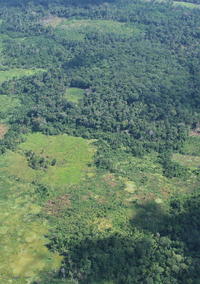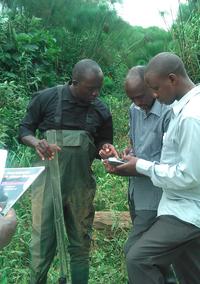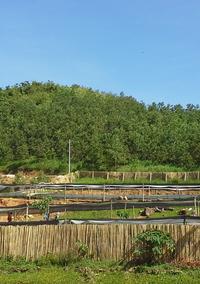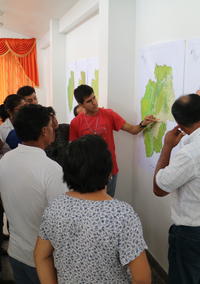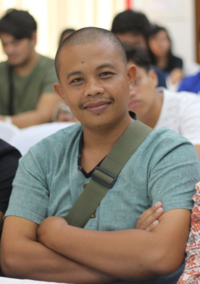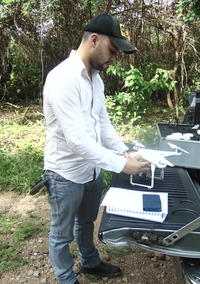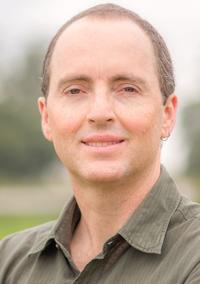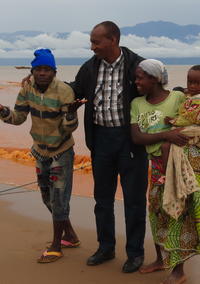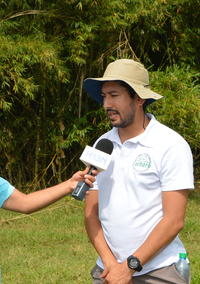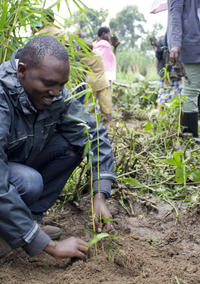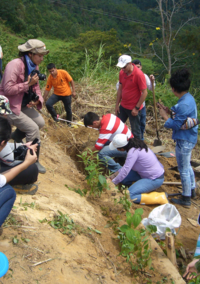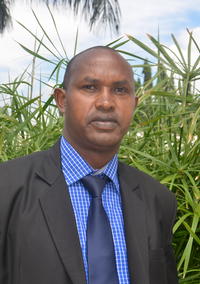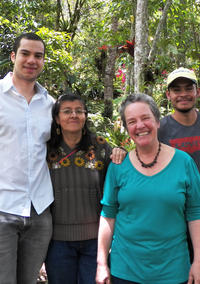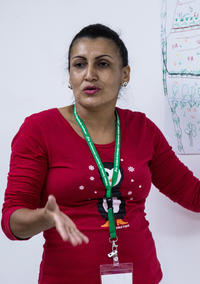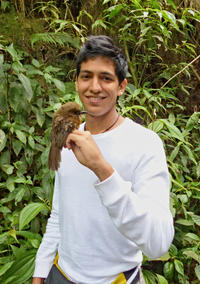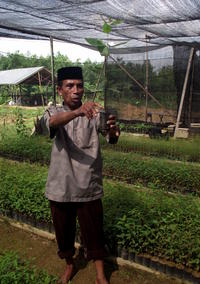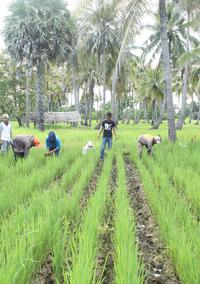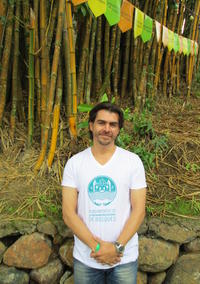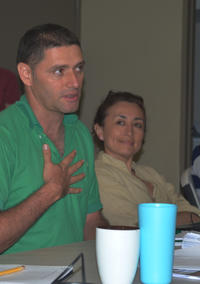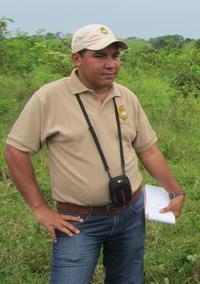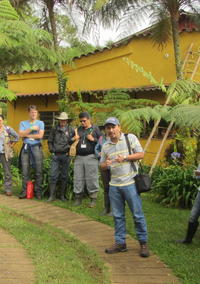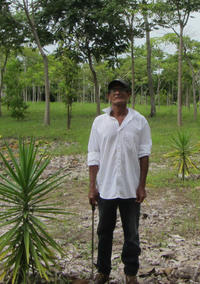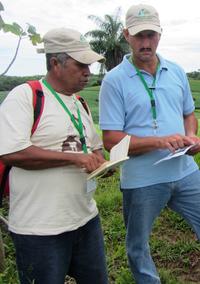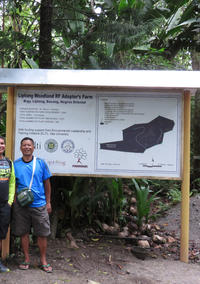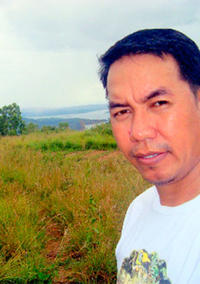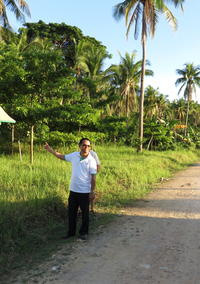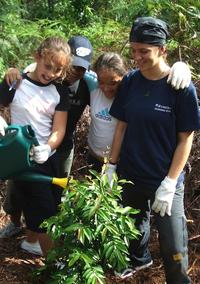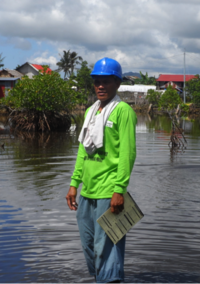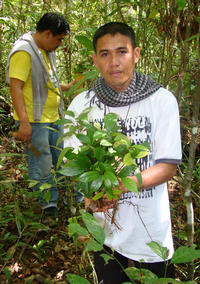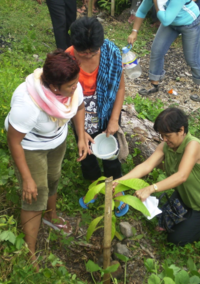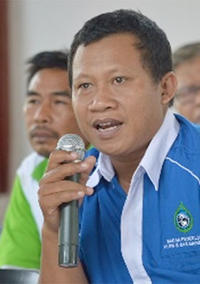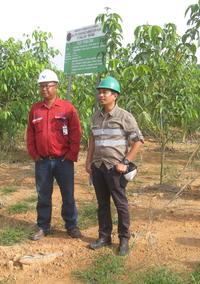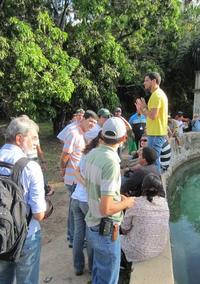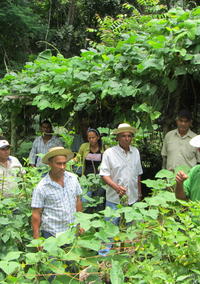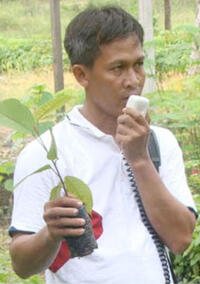You are here
Agroecology as an Alternative: Promoting Productive Backyards in Brazil
Felipe Otávio Campelo e Silva, a researcher and advocate for sustainable agriculture, leads an initiative in southern Bahia, Brazil, focused on the transformative potential of agroecological backyards. The project aims to characterize and enhance the productive potential of these spaces, helping families improve their livelihoods while restoring the environment.
Campelo e Silva is a PhD candidate in the Graduate Program in Biosystems at Universidade Federal do Sul da Bahia (Federal University of Southern Bahia [UFSB]). His background includes a master’s degree in rural sociology from Universidade Federal de Campina Grande (Federal University of Campina Grande [UFCG]) and a degree in agricultural engineering from Universidade Federal de Viçosa (Federal University of Viçosa [UFV]).
Conducted on 18 settlement plots in the municipalities of Teixeira de Freitas and Prado, the project highlights the importance of these backyards as biodiverse spaces that significantly contribute to food sovereignty. Using a predominantly agroecological management approach, families cultivate a variety of plants, including fruits, medicinal herbs, and vegetables, on plots ranging from 0.54 to 3.1 hectares. Approximately 94.4% of these productive backyards are managed with agroecological practices.
Campelo e Silva’s research shows that these productive backyards not only serve as income sources but also improve the quality of life for participating families. The presence of 230 plant species indicates a thriving ecosystem that provides various ecosystem services essential for community well-being and biodiversity restoration. He believes that understanding the intricate relationships between these productive spaces and ecosystem services is essential for shaping effective public policies. By addressing the challenges and potentials identified through this research, the project aims to contribute to the development of socio-biodiverse production strategies that benefit the region’s family farms.
Currently living in a rural settlement in Teixeira de Freitas, Campelo e Silva has been part of Brazil’s Movimento dos Trabalhadores Rurais Sem Terra (Landless Workers' Movement [MST]) since 2000, amassing over two decades’ experience in advocating for land reform. His journey began in the Amazon and is now centered in southern Bahia, where he coordinates the Egídio Brunetto Popular School of Agroecology and Agroforestry, affiliated with MST in the municipality of Prado, Bahia. Since its creation in 2013, the school has promoted agroecology on several fronts, including youth and adult literacy and technical training for settlers, Indigenous people, and Quilombolas (descendants of Afro-Brazilian communities formed by escaped enslaved people) as well as offering specialized courses.
The school, which occupies approximately 13 hectares, operates as an open-air laboratory with production units dedicated to cultivating coffee and cocoa in agroforestry systems, black pepper, free-range chickens, and vegetables and to producing inputs. Located in an area dominated by eucalyptus monoculture and pasture, the Egídio Brunetto School stands as a counterpoint to this economic model, prioritizing the restoration of the Atlantic Forest in the reclaimed areas.
For Campelo e Silva, strengthening agroecology within settlements is essential for building sustainable and inclusive agriculture. He emphasizes that all the school’s activities focus on native seedling production and the recovery of the Atlantic Forest.
Campelo e Silva’s knowledge and experience were enhanced by the ELTI course “Environmental and Productive Sustainability in Rural Properties,” offered in partnership with Instituto de Pesquisas Ecológicas (Institute for Ecological Research [IPÊ]) and UFSB. He says that the course provided practical and theoretical reflections on environmental restoration, supporting the development of strategies for environmental recovery and fostering knowledge exchange among instructors and participants.
The support from ELTI’s Environmental Leadership Program was crucial for Campelo e Silva in developing his fieldwork and soil analyses. In addition, the course enabled his participation in the Brazilian Congress on Agroecology, held in Rio de Janeiro, where he shared his research findings. “This program is extremely valuable,” he says, expressing gratitude for the opportunity to blend different knowledge systems—from science to farmer insights—in a continuous learning process.
by Mabel Ludka, updated December 20, 2024
Our findings demonstrate that agroecological backyards are vital for promoting food sovereignty and enhancing environmental sustainability.
Felipe Otávio Campelo e Silva

